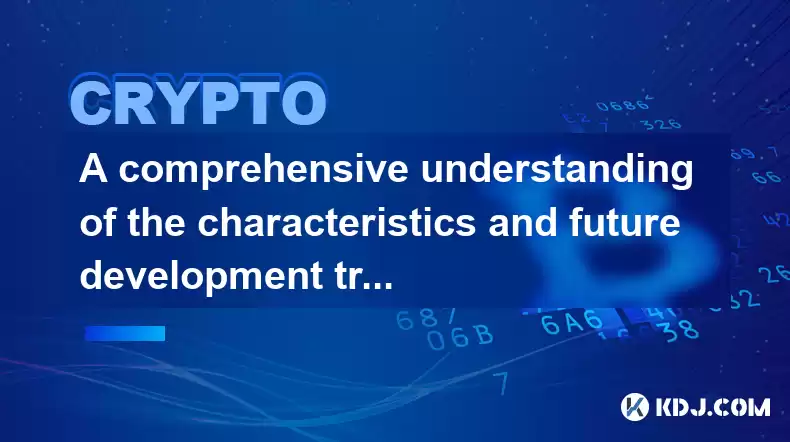-
 Bitcoin
Bitcoin $114200
0.00% -
 Ethereum
Ethereum $3637
0.56% -
 XRP
XRP $2.950
-2.01% -
 Tether USDt
Tether USDt $0.9999
0.02% -
 BNB
BNB $761.0
0.55% -
 Solana
Solana $164.1
-1.38% -
 USDC
USDC $0.9999
0.02% -
 TRON
TRON $0.3332
0.36% -
 Dogecoin
Dogecoin $0.2012
-0.52% -
 Cardano
Cardano $0.7261
-1.41% -
 Hyperliquid
Hyperliquid $37.62
-2.13% -
 Stellar
Stellar $0.3930
-2.65% -
 Sui
Sui $3.441
-0.16% -
 Bitcoin Cash
Bitcoin Cash $563.8
0.70% -
 Chainlink
Chainlink $16.50
0.09% -
 Hedera
Hedera $0.2424
-0.14% -
 Ethena USDe
Ethena USDe $1.001
0.01% -
 Avalanche
Avalanche $22.20
0.00% -
 Litecoin
Litecoin $118.0
-2.48% -
 UNUS SED LEO
UNUS SED LEO $8.991
0.12% -
 Toncoin
Toncoin $3.195
-3.87% -
 Shiba Inu
Shiba Inu $0.00001217
0.12% -
 Uniswap
Uniswap $9.674
-0.21% -
 Polkadot
Polkadot $3.633
1.00% -
 Monero
Monero $295.3
-0.82% -
 Dai
Dai $0.9999
0.00% -
 Bitget Token
Bitget Token $4.321
-0.41% -
 Cronos
Cronos $0.1392
0.73% -
 Pepe
Pepe $0.00001027
-0.89% -
 Aave
Aave $258.5
0.32%
A comprehensive understanding of the characteristics and future development trends of Request (REQ) currency in one article
With its comprehensive features, adoption partnerships, and future roadmap, Request (REQ) currency is positioned for sustained growth in the decentralized payment market.
Dec 31, 2024 at 01:09 am

Comprehensive Understanding of Request (REQ) Currency: Characteristics and Future Trends
Key Points:
- Chronological Development of Request: Overview of the inception, launch, and milestones achieved by Request Network.
- Core Features and Functionality: Detailed explanation of Request's Request Network, RESTless SDK, and other key components.
- Tokenomics and Supply Distribution: Analysis of REQ token's issuance, distribution, and utility within the Request ecosystem.
- Governance Model: Exploration of Request's distributed governance model and role of the REQ token in decision-making.
- Adoption and Partnerships: Examination of Request's partnerships and integrations with various platforms and projects within the blockchain industry.
- Competitors and Market Positioning: Analysis of Request's competitive landscape and unique value proposition in the decentralized payment space.
- Future Development and Roadmap: Insights into Request's future development plans and potential growth trajectory.
Chronological Development of Request
- 2017: Request Network concept is conceived and initial development begins.
- 2018: REQ token undergoes Initial Coin Offering (ICO), raising approximately $65 million.
- 2019: Launch of Request Network Alpha and its first decentralized payment module, Request Finance.
- 2020: Release of Request Network Beta, RESTless SDK, and integrations with Ethereum, Polygon, and Binance Smart Chain.
- 2021: Partnerships with leading blockchain platforms, including 0x, MakerDAO, and Aave.
- 2022: Deployment of Request Network on multiple sidechains and layer-2 scaling solutions to enhance network efficiency.
Core Features and Functionality
- Request Network: A decentralized network that enables users to create, send, and track payment requests in a verifiable and auditable manner.
- RESTless SDK: Software Development Kit (SDK) that allows developers to integrate Request Network into their applications with ease.
- REQ Token: Utility token that serves as the primary means of payment on the Request Network, facilitating payment requests and dispute resolution.
- Dispute Resolution: Mechanism designed to resolve disputes between requestors and payers in a fair and impartial manner through a distributed network of arbitrators.
Tokenomics and Supply Distribution
- Token Supply: 999,900,001 REQ tokens issued in total, with approximately 28% distributed during the ICO.
- Token Allocation: Distribution of tokens among founders, development team, advisors, and community members through various mechanisms.
- Token Utility: Primarily utilized for payment of request creation fees and dispute arbitration costs within the Request Network.
- Speculative Value: REQ token also holds speculative value due to its potential for future growth and utility in the decentralized payment market.
Governance Model
- Distributed Governance: Request Network employs a distributed governance model where token holders have a voice in decisions related to protocol development, ecosystem growth, and funding allocation.
- REQ Token: REQ token holders participate in governance by voting on proposals, empowering them to shape the future direction of the project.
- Request DAO: The Request DAO serves as the central decision-making body, consisting of elected members from the community.
- Development Funding: Governance proposals can include allocating funds from the community treasury to support project development and initiatives.
Adoption and Partnerships
- Blockchain Platforms: Integrated with leading blockchain platforms, including Ethereum, Polygon, Avalanche, and Binance Smart Chain, expanding its reach across various blockchain ecosystems.
- Cryptocurrency Exchanges: Listed on major cryptocurrency exchanges, including Binance, Coinbase, and KuCoin, providing access to REQ tokens for a global audience.
- Payment Processors: Partnerships with payment processors such as Wyre and Alchemy Pay enable users to convert REQ tokens into fiat currencies and facilitate seamless payments.
- Third-Party Integrations: Developers have adopted Request Network's RESTless SDK to integrate its decentralized payment features into various applications, such as wallets, marketplaces, and accounting systems.
Competitors and Market Positioning
- Other On-chain Payment Networks: Request Network competes with other decentralized payment platforms such as xDAI Network, Concierge Network, and FIO Protocol, each offering its unique features and value proposition.
- Fiat Payment Gateways: Request Network aims to disrupt traditional fiat payment gateways by offering lower fees, enhanced transparency, and global reach.
- Value Proposition: Request Network differentiates itself through its decentralized governance model, interoperability with multiple blockchains, customizable payment templates, and dispute resolution mechanism.
Future Development and Roadmap
- Cross-Chain Integration: Explore cross-chain interoperability solutions to expand the reach of Request Network to different blockchain ecosystems.
- Enhanced Scalability: Implement layer-2 solutions and sidechains to enhance network capacity and reduce transaction costs for users.
- New Use Cases: Identify and develop new use cases for Request Network in various industries, such as supply chain management, e-commerce, and invoice processing.
- Strategic Partnerships: Pursue partnerships with blockchain projects, DeFi platforms, and payment service providers to expand the adoption and utility of Request Network.
- Community Growth: Engage with the community to foster adoption, gather feedback, and support the growth of the Request ecosystem.
FAQs Related to Request (REQ) Currency
1. What is the purpose of the REQ token?
The REQ token serves as the primary means of payment for request creation fees and dispute arbitration costs within the Request Network. It also holds speculative value due to its role in governance and potential for future growth in the decentralized payment market.
2. How can I participate in Request Network governance?
To participate in governance, users must hold REQ tokens and stake them to earn voting power. Voting power determines the influence of an individual's vote on proposals related to protocol development, ecosystem growth, and funding allocation.
3. What sets Request Network apart from other on-chain payment networks?
Request Network distinguishes itself through its interoperability with multiple blockchains, decentralized governance model, customizable payment templates, dispute resolution mechanism, and collaborations with leading blockchain projects and payment processors.
4. What is the future outlook for Request (REQ) currency?
With its focus on cross-chain integration, scalability improvements, new use case exploration, strategic partnerships, and community engagement, Request (REQ) currency has the potential to continue its growth trajectory in the decentralized payment space, offering users a decentralized, transparent, and reliable payment solution.
5. Where can I buy or sell REQ tokens?
REQ tokens are listed on major cryptocurrency exchanges such as Binance, Coinbase, KuCoin, and Gate.io, providing easy access for investors and users who wish to acquire or dispose of REQ tokens.
Disclaimer:info@kdj.com
The information provided is not trading advice. kdj.com does not assume any responsibility for any investments made based on the information provided in this article. Cryptocurrencies are highly volatile and it is highly recommended that you invest with caution after thorough research!
If you believe that the content used on this website infringes your copyright, please contact us immediately (info@kdj.com) and we will delete it promptly.
- Binance, CZ, and the FTX Fallout: The $1.8 Billion Question
- 2025-08-06 18:30:12
- Brendan Rodgers, Celtic, and the Greg Taylor Role: A Tactical Conundrum
- 2025-08-06 18:50:12
- Coinbase Stock, Investment, and Earnings: Navigating Crypto's Tides
- 2025-08-06 18:55:54
- DALPY Coin: Investor Buzz Swirls Around Upcoming 'Game-Changing' Features
- 2025-08-06 18:30:12
- Fast-Moving Cryptos: Could Pudgy Penguins Deliver High Gains by 2025?
- 2025-08-06 16:30:11
- Crypto Gaming Tokens: August 2025 Investment Opportunities
- 2025-08-06 16:50:12
Related knowledge

What is Chainlink (LINK)?
Jul 22,2025 at 02:14am
Understanding Chainlink (LINK): The Decentralized Oracle NetworkChainlink is a decentralized oracle network designed to bridge the gap between blockch...

What is Avalanche (AVAX)?
Jul 22,2025 at 08:35am
What is Avalanche (AVAX)?Avalanche (AVAX) is a decentralized, open-source blockchain platform designed to support high-performance decentralized appli...

What is Polkadot (DOT)?
Jul 19,2025 at 06:35pm
Understanding the Basics of Polkadot (DOT)Polkadot (DOT) is a multi-chain network protocol designed to enable different blockchains to transfer messag...

What is Litecoin (LTC)?
Jul 23,2025 at 11:35am
Overview of Litecoin (LTC)Litecoin (LTC) is a peer-to-peer cryptocurrency that was created in 2011 by Charlie Lee, a former Google engineer. It is oft...

What is Monero (XMR)?
Jul 21,2025 at 10:07am
What is Monero (XMR)?Monero (XMR) is a decentralized cryptocurrency designed to provide enhanced privacy and anonymity for its users. Unlike Bitcoin a...

How to add indicators to Ethereum chart on TradingView?
Jul 19,2025 at 07:15am
What Is an Ethereum Chart on TradingView?The Ethereum chart on TradingView is a visual representation of the price movement of Ethereum (ETH) over a s...

What is Chainlink (LINK)?
Jul 22,2025 at 02:14am
Understanding Chainlink (LINK): The Decentralized Oracle NetworkChainlink is a decentralized oracle network designed to bridge the gap between blockch...

What is Avalanche (AVAX)?
Jul 22,2025 at 08:35am
What is Avalanche (AVAX)?Avalanche (AVAX) is a decentralized, open-source blockchain platform designed to support high-performance decentralized appli...

What is Polkadot (DOT)?
Jul 19,2025 at 06:35pm
Understanding the Basics of Polkadot (DOT)Polkadot (DOT) is a multi-chain network protocol designed to enable different blockchains to transfer messag...

What is Litecoin (LTC)?
Jul 23,2025 at 11:35am
Overview of Litecoin (LTC)Litecoin (LTC) is a peer-to-peer cryptocurrency that was created in 2011 by Charlie Lee, a former Google engineer. It is oft...

What is Monero (XMR)?
Jul 21,2025 at 10:07am
What is Monero (XMR)?Monero (XMR) is a decentralized cryptocurrency designed to provide enhanced privacy and anonymity for its users. Unlike Bitcoin a...

How to add indicators to Ethereum chart on TradingView?
Jul 19,2025 at 07:15am
What Is an Ethereum Chart on TradingView?The Ethereum chart on TradingView is a visual representation of the price movement of Ethereum (ETH) over a s...
See all articles

























































































